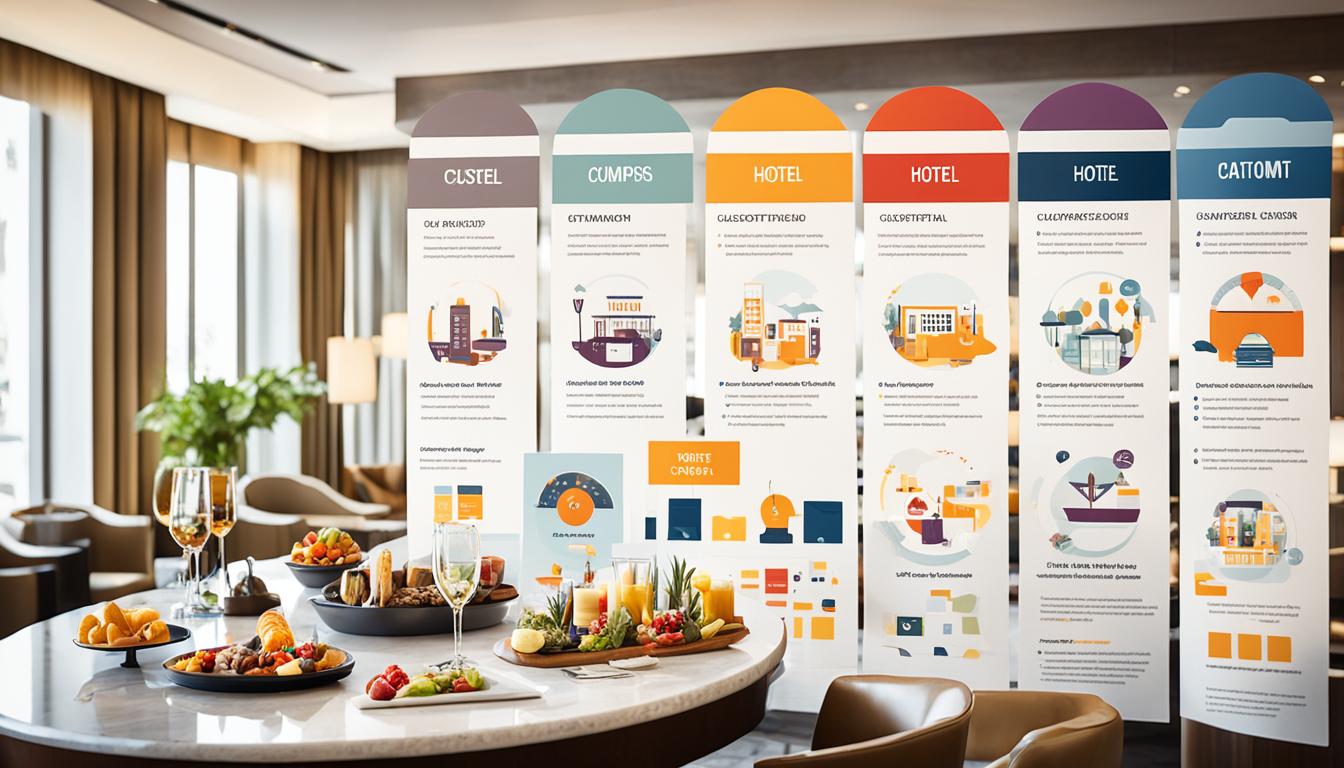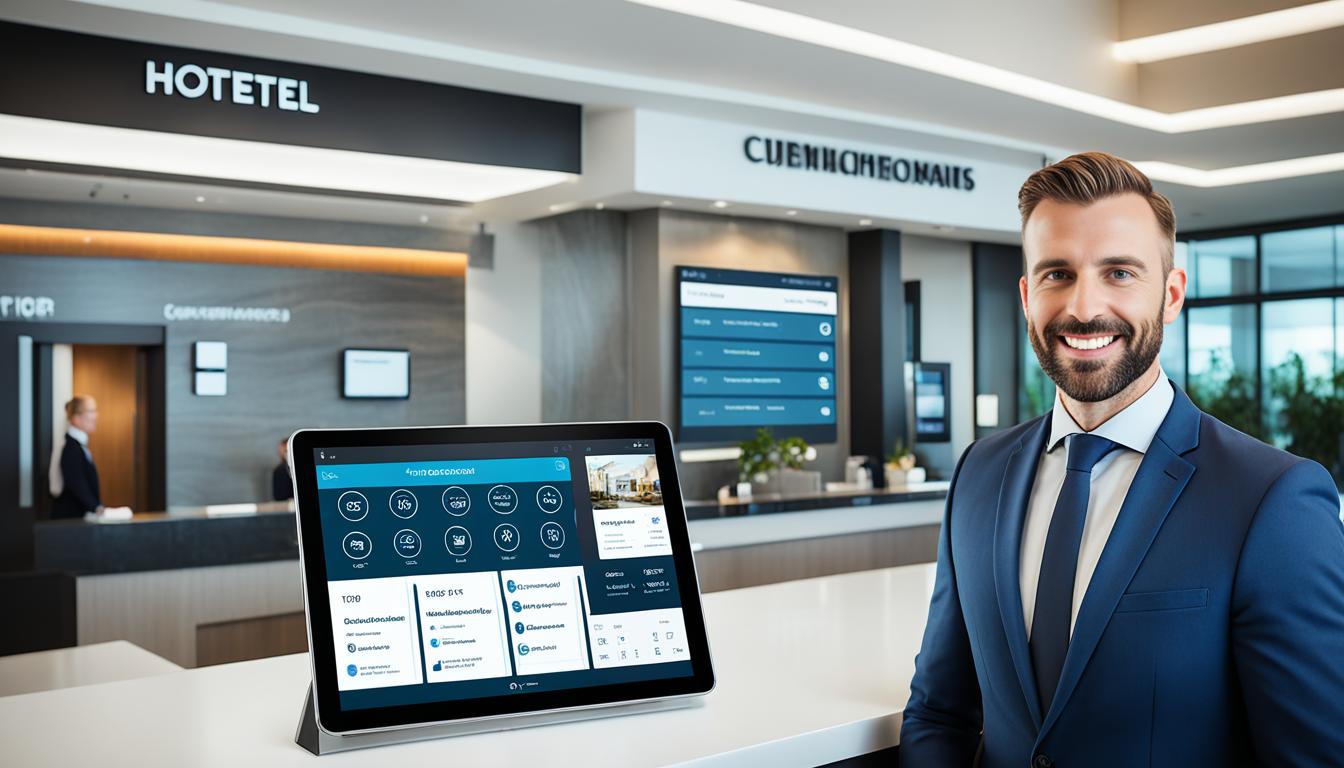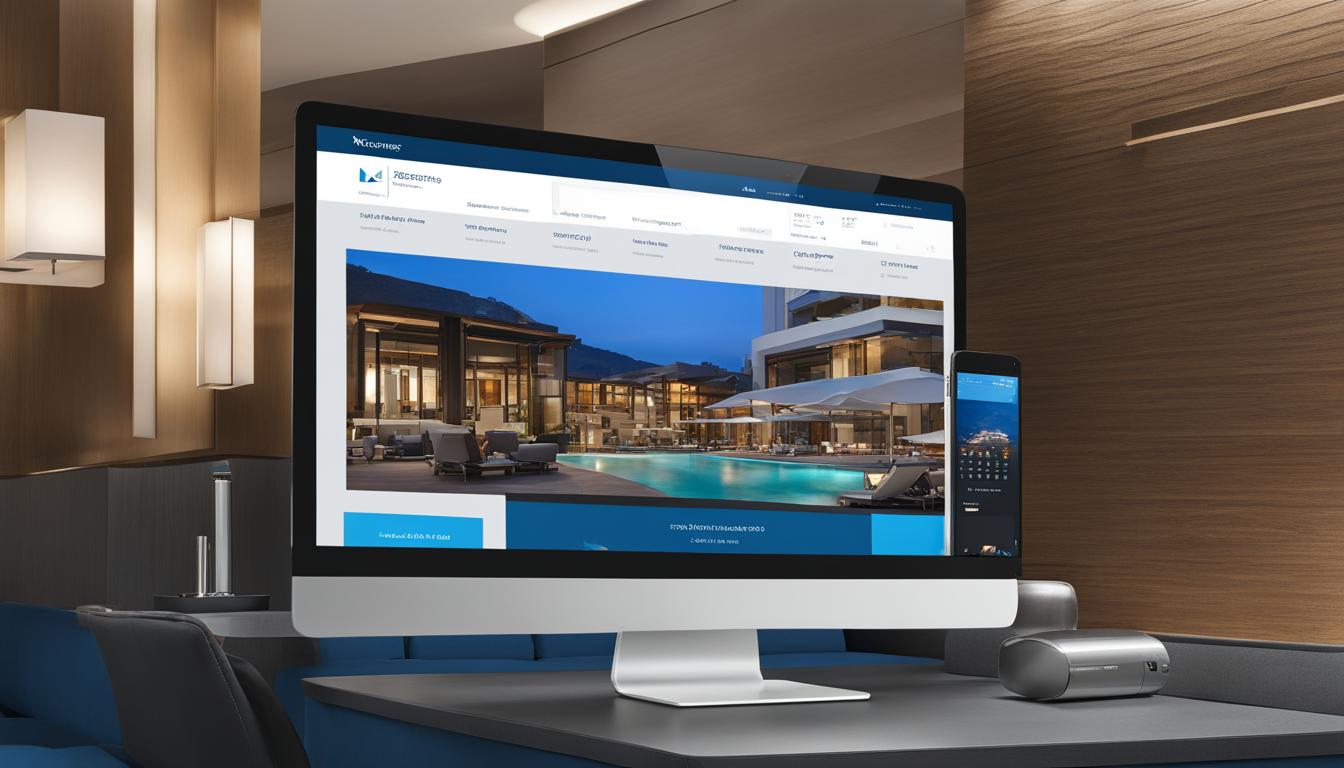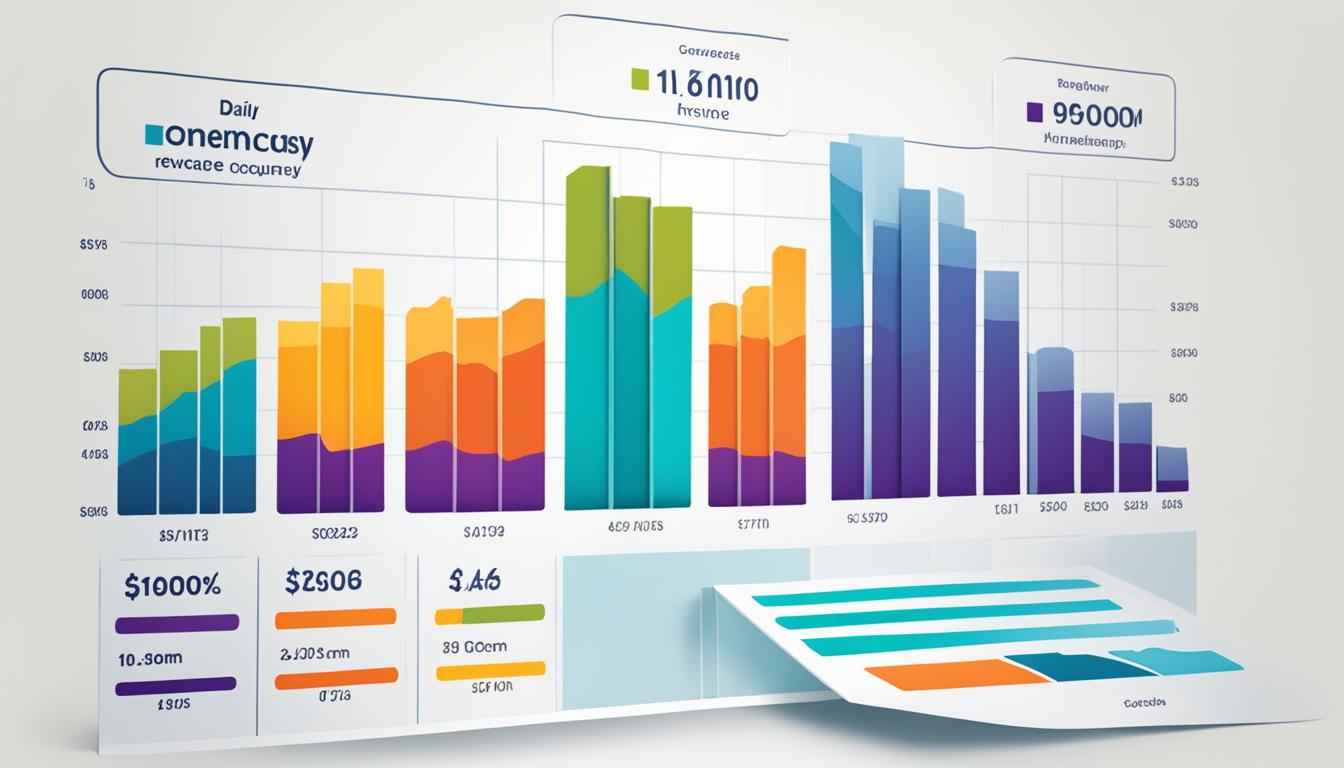The success of a hotel relies heavily on its ability to generate revenue and maximize profits. In an increasingly competitive market, hotels must employ effective strategies to enhance their revenue potential. One such strategy is hotel market segmentation, a key component of revenue optimization.
Hotel market segmentation involves dividing the overall market into distinct segments based on factors such as demographics, psychographics, and behaviors. By understanding different market segments and tailoring marketing efforts to target specific groups, hotels can better meet the needs and preferences of their guests.
Market segmentation allows hotels to align their offerings with the unique desires and expectations of each segment, leading to increased customer satisfaction and loyalty. Additionally, it enables hotels to identify high-value segments that can potentially generate higher revenue.
By implementing effective hotel market segmentation, hotels can optimize their revenue by leveraging targeted marketing campaigns and customized offerings. This approach allows hotels to allocate their resources more efficiently, focusing on the segments that yield the greatest return on investment.
In the following sections, we will explore the concept of hotel market segmentation in further detail. We will discuss revenue management strategies, the importance of hotel booking engines and channel managers, and the role of a hotel website builder in revenue optimization. These tools and strategies, including PlanetHMS’ hotel management software, can help hotels enhance their revenue potential and achieve sustainable business growth.
Understanding Hotel Market Segmentation
In the highly competitive hotel industry, understanding market segmentation is crucial for success. Market segmentation refers to the practice of dividing the market into distinct groups of potential guests based on their demographics, preferences, and behavior. By segmenting the market, hotels can tailor their marketing efforts and offerings to attract their target audience effectively.
The first step in market segmentation is identifying the different types of hotel guests that exist. This can include leisure travelers, business travelers, families, couples, and more. Each segment has different needs, expectations, and motivations when choosing a hotel. For example, business travelers may prioritize convenient location and business amenities, while families may look for kid-friendly facilities and spacious accommodations.
Once the various market segments have been identified, hotels can then develop targeted marketing strategies to reach each segment more effectively. This could involve creating specific promotions, packages, or advertising campaigns tailored to the needs and preferences of each segment. By understanding the unique characteristics and preferences of each segment, hotels can provide personalized experiences that resonate with their target audience, leading to higher occupancy rates and increased revenue.
Market segmentation also allows hotels to optimize their pricing strategies. Different customer segments may be willing to pay different rates based on their perceived value of the hotel offerings. For example, business travelers may be more willing to pay higher rates for a hotel located in a prime business district, while budget-conscious leisure travelers may seek affordable options without compromising on quality. By understanding the price sensitivity of each segment, hotels can set competitive rates that maximize revenue without alienating potential guests.
Overall, market segmentation plays a vital role in helping hotels identify and target their ideal customer segments effectively. By tailoring their marketing efforts, offerings, and pricing strategies to the needs and preferences of different segments, hotels can attract and retain their target audience, driving higher occupancy rates and increased revenue.
Hotel Revenue Management Strategies
Revenue management plays a crucial role in optimizing profits for hotels. By implementing effective strategies, hotel revenue managers can maximize their revenue potential and drive business growth. In this section, we will explore various revenue management strategies that hotels employ to optimize their profits.
Pricing Strategies
One of the key revenue management strategies is pricing. Hotels need to adopt dynamic pricing practices based on market demand, competition, and seasonality. By adjusting room rates in real-time, hotels can optimize revenue and capture maximum value from each booking. Advanced revenue management systems, such as the one offered by XYZ Revenue Solutions, provide accurate data analysis and pricing recommendations to help hotels make informed pricing decisions.
Inventory Control Strategies
Effective inventory control is another important revenue management strategy. By managing room inventory efficiently, hotels can ensure optimal occupancy rates and avoid overbooking or underutilization of rooms. This involves implementing effective forecasting, monitoring booking patterns, and setting appropriate length-of-stay restrictions. XYZ Revenue Solutions’ inventory control tools provide hotels with real-time updates and insights to maximize room availability and revenue.
Distribution Strategies
Hotel revenue managers also need to develop distribution strategies that optimize revenue. This involves identifying the most profitable distribution channels and leveraging them effectively. Hotels can enhance their online presence by connecting with online travel agencies (OTAs) and global distribution systems (GDS) to reach a wider audience. They can also prioritize direct bookings through their own websites by offering exclusive deals and incentives. XYZ Revenue Solutions’ distribution management software streamlines the distribution process and helps hotels maximize their reach and revenue potential.
By implementing these revenue management strategies, hotels can optimize their profits and thrive in a competitive market. The key lies in leveraging advanced revenue management tools and analyzing data to make informed decisions. In the next section, we will explore the significance of a hotel booking engine in revenue optimization.
Leveraging Hotel Booking Engine for Revenue Optimization
A hotel booking engine is a powerful tool that can significantly contribute to revenue optimization for hotels. By integrating a hotel booking engine into their website, hotels can efficiently manage their available inventory, increase direct bookings, and enhance the overall guest experience.
One of the key advantages of a hotel booking engine is its ability to drive direct bookings. With direct bookings, hotels can bypass third-party online travel agencies and avoid paying high commission fees. By showcasing their rooms, amenities, and special offers directly on their website, hotels can entice guests to make reservations directly, resulting in higher profits and better control over their pricing strategies.
Streamlining the reservation process is another significant benefit of a hotel booking engine. By providing guests with a user-friendly and efficient online booking platform, hotels can simplify the reservation process, reducing the chances of abandonment and ensuring a smooth and hassle-free experience for guests. The convenience of online reservations encourages guests to book directly through the hotel’s website, minimizing the risk of losing potential bookings to competitors or alternative accommodation options.
Furthermore, leveraging a hotel booking engine allows hotels to gather valuable guest data and insights. Through the booking engine’s analytics features, hotels can gain a deeper understanding of their target audience, identify booking trends, and tailor their marketing strategies according to guest preferences. This data-driven approach enables hotels to optimize revenue by identifying and capitalizing on opportunities for upselling, cross-selling, and personalized marketing campaigns.
In conclusion, a hotel booking engine plays a crucial role in revenue optimization for hotels. By focusing on direct bookings, streamlining the reservation process, and leveraging guest data, hotels can enhance their profitability and competitiveness in the market. Investing in a reliable and feature-rich hotel booking engine is essential for hoteliers looking to capitalize on the benefits of online reservations and maximize their revenue potential.
Enhancing Distribution Channels with a Hotel Channel Manager
A hotel channel manager plays a crucial role in managing distribution channels effectively. This powerful software enables hotels to connect with multiple online travel agencies (OTAs) and maximize their online presence, resulting in increased revenue potential.
With a hotel channel manager, hotels can seamlessly manage their inventory and rates across different distribution channels, including popular OTAs like Expedia, Booking.com, and Airbnb. This ensures that availability and pricing information are consistent across all platforms, reducing the risk of overbooking or rate discrepancies.
By connecting with a wide range of OTAs through a hotel channel manager, hotels can tap into a larger audience and reach potential guests who prefer booking through specific platforms. This expanded reach increases the hotel’s visibility and boosts the chances of securing more bookings.
One of the key advantages of using a hotel channel manager is the ability to streamline the distribution process. Instead of manually updating rates and availability on each OTA’s extranet, hotels can manage everything from a single platform. This significantly saves time and eliminates the risk of errors, ensuring that the most up-to-date information is always displayed to potential guests.
The image above illustrates the role of a hotel channel manager in seamlessly connecting a hotel’s inventory with online travel agencies. By integrating with the hotel’s property management system (PMS), the channel manager ensures real-time updates and instant synchronization of room availability and rates.
In addition to simplifying the distribution process, a hotel channel manager also provides valuable insights and reporting features. Hoteliers can analyze the performance of their distribution channels, track the effectiveness of their pricing strategies, and make data-driven decisions to optimize revenue.
In summary, a hotel channel manager is a powerful tool for enhancing distribution channels. It enables hotels to reach a broader audience, streamline distribution processes, and gain valuable insights. By leveraging this software, hotels can maximize their online presence, increase bookings through online travel agencies, and ultimately boost revenue potential.
Creating a Profitable Online Presence with a Hotel Website Builder
A strong online presence is crucial for hotels to attract potential guests and drive direct bookings. With the rapid growth of the digital landscape, having a well-designed website that offers an exceptional user experience is essential. This is where a hotel website builder comes in.
A hotel website builder is a powerful tool that allows hoteliers to create and customize their websites without the need for extensive coding knowledge. It provides an intuitive interface with drag-and-drop functionality, making it easy to design a visually appealing website that aligns with the hotel’s brand image and captures the attention of potential guests.
One of the key benefits of using a hotel website builder is the ability to create mobile-responsive websites. With an increasing number of travelers using smartphones and tablets to make their bookings, it’s vital for a hotel’s website to provide a seamless user experience across all devices. A hotel website builder ensures that the website layout and content automatically adapt to different screen sizes, ensuring a consistent and user-friendly experience for all potential guests.
Furthermore, a hotel website builder offers a variety of templates and design elements to choose from, allowing hoteliers to showcase their property’s unique features and amenities effectively. Whether it’s highlighting luxurious accommodations, stunning photos of the property or showcasing special offers, a hotel website builder provides the flexibility to create compelling content that appeals to the target audience.
In addition to an attractive design, a hotel website builder also enables hoteliers to optimize their website for better search engine visibility. It offers built-in SEO features such as meta tags, keyword optimization, and XML sitemaps, helping the website rank higher in search engine results. This increases the hotel’s online visibility, driving organic traffic and potential direct bookings.
Another advantage of using a hotel website builder is the integration of booking engines and reservation systems seamlessly. By incorporating a direct booking engine into the website, hoteliers can provide a convenient and hassle-free booking experience for guests, encouraging them to make direct reservations instead of relying on third-party platforms. This not only helps hotels save on commission fees but also allows them to build stronger relationships with their guests.
In conclusion, a hotel website builder plays a critical role in revenue optimization by empowering hoteliers to create and maintain a profitable online presence. With its user-friendly interface, mobile responsiveness, customizable design options, SEO features, and integrated booking engine, hoteliers can attract more guests, drive direct bookings, and ultimately boost revenue.
Conclusion
Hotel market segmentation plays a crucial role in revenue optimization for hotels. By understanding and effectively targeting different market segments, hotels can maximize their profits. It allows them to tailor their offerings to specific customer groups, ensuring their marketing efforts resonate with the right audience.
Revenue management strategies further contribute to profit optimization. By implementing pricing, inventory control, and distribution strategies, hotels can strategically manage their resources and increase revenue. These strategies enable hotels to optimize their pricing and availability, ensuring they capture the most value from each customer segment.
Hotel management software, such as PlanetHMS’ hotel booking engine, hotel channel manager, and hotel website builder, are essential tools for revenue optimization. The hotel booking engine streamlines the reservation process, increasing direct bookings and reducing dependency on third-party channels. The hotel channel manager connects hotels with various online travel agencies, expanding their reach and visibility. Additionally, the hotel website builder helps hotels create attractive and user-friendly websites, driving direct bookings and enhancing the guest experience.
Hoteliers are encouraged to leverage these tools to optimize revenue and drive business growth. By incorporating hotel market segmentation, revenue management strategies, and hotel management software into their operations, hotels can stay competitive in the ever-evolving hospitality industry. Embracing these practices will enable hotels to attract the right guests, maximize their profits, and ensure long-term success.







